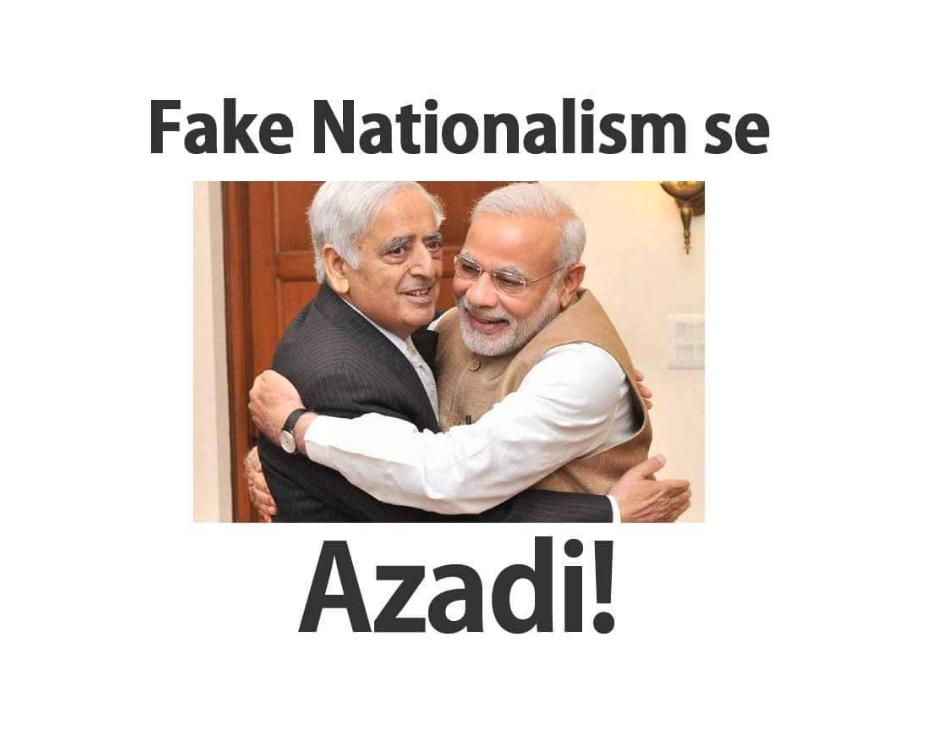While You Were Watching Kanhaiya, The Govt Denied A Religious Freedom Body Entry Into India

MUMBAI: A few days ago, a major piece of news was relegated to the back burner as JNU student union president Kanhaiya Kumar dominated all media headlines. That neglected piece of news, however, puts the whole ‘nationalism versus anti-nationalism’ controversy into further perspective.
A long planned visit of a US delegation was scuppered when the Indian government denied a team of people from the the US Commission on International Religious Freedom visas. The delegation was set to leave for India on Friday, as part of a visit sanctioned by the US state department and the US embassy in New Delhi. At the last minute, however, India refused to issue the necessary visas.
India, on its part, defended its decision, saying that it did not see the need to allow a foreign entity to pass judgment on the state of religious freedom in the country. In a statement Friday, the Indian embassy in Washington said the group did not have the standing “to pass its judgment and comment on the state of Indian citizens’ constitutionally-protected rights.”
“We are deeply disappointed by the Indian government’s denial, in effect, of these visas,” USCIRF chairman Robert George said in a statement. “As a pluralistic, non-sectarian, and democratic state, and a close partner of the United States, India should have the confidence to allow our visit,” he said.
George said USCIRF had been able to travel to many countries, including those with a bad reputation regarding religious freedoms, such as Pakistan, Saudi Arabia, Vietnam, China, and Myanmar.
“One would expect that the Indian government would allow for more transparency than have these nations, and would welcome the opportunity to convey its views directly to USCIRF.“
Meanwhile, in India, BJP MPs were openly equating Muslims to “demons,” whilst the government’s HRD Minister made a hue and cry about the celebration of Mahishasura Martyrdom Day in the Indian Parliament (Mahishasura is celebrated by some dalit and adivasi groups in parts of India).
Union Minister of State, HRD, and BJP Agra MP Ram Shankar Katheria as well as the BJP’s Fatehpur Sikri MP Babu Lal, along with several others, were present at a meet in Agra, as speaker after speaker urged Hindus to “corner Muslims and destroy the demons (rakshas)”, while declaring that “all preparations” had been made to effect “badla (revenge)” before the 13th-day death rituals for Mahaur. “Human skulls would be offered to his martyrdom,” VHP district secretary Ashok Lavania, who has been jailed earlier for assaults on Muslims, said (as reported by The Indian Express).
The New York Times, in an article on the denial of visas to USCIRF, wrote, “India has had a checkered history with religious violence, and the election of Prime Minister Narendra Modi and his Hindu nationalist Bharatiya Janata Party in 2014 raised concerns about the potential for increased religious tensions.”
Not the best sort of coverage for a country that has raised concern regarding religious freedoms the world over, more so after the Dadri lynching where a Muslim man was dragged out of his house and beaten to death over rumours that his family ate beef (it later turned out that the meat in the family’s refrigerator was mutton - not that it should even matter).
In a report published last year, the commission said that religiously motivated violent episodes reportedly increased for three consecutive years in India, and that the struggle to provide justice to victims “perpetuates a climate of impunity.”
This commission isn’t alone in issuing concern over religious freedom (or the lack thereof) in India. In February, expressing serious concern over violence against religious minorities in India, 34 top American lawmakers asked Prime Minister Narendra Modi to take immediate steps to protect their fundamental rights and bring the perpetrators to justice. "We urge your government to take immediate steps to ensure that the fundamental rights of religious minorities are protected and that the perpetrators of violence are held to account," the lawmakers, including eight Senators, said in a letter to the Prime Minister.
"We also urge you to take steps to control the activities of groups, such as the Rashtriya Swayamsevak Sangh (RSS), and instruct Indian security forces to enforce the rule of law and protect religious minority communities from religiously- motivated harassment and violence.”
Amnesty International, in a report released last month, said that authorities in India failed to "prevent many incidents of religious violence" and sometimes "contributed to tensions through polarising speeches. “Authorities clamped down on civil society organisations critical of official policies, and increased restrictions on foreign funding. Religious tensions intensified, and gender and caste-based discrimination and violence remained pervasive. Censorship and attacks on freedom of expression by hardline Hindu groups grew.”
Freedoms -- the key word. It’s perhaps no coincidence that ‘Azadi’ is the word that has hurled through our TV screens and computer monitors, as Kanhaiya Kumar, Rohith Vemula and other students and protesters, come to symbolise the wider struggle in this country. Azadi from religious intolerance. Azadi from corruption. Azadi from brahmanwadi. Azadi from poverty. Azadi from discrimination. Azadi from casteism. All of this fits into a larger narrative of an India that we are all hoping to build.
But is the government listening? Why should it, when it can just arrest students on the charges of sedition or deny fact-finding committees visas?
(This is an opinion piece that appears in Young Citizen).



